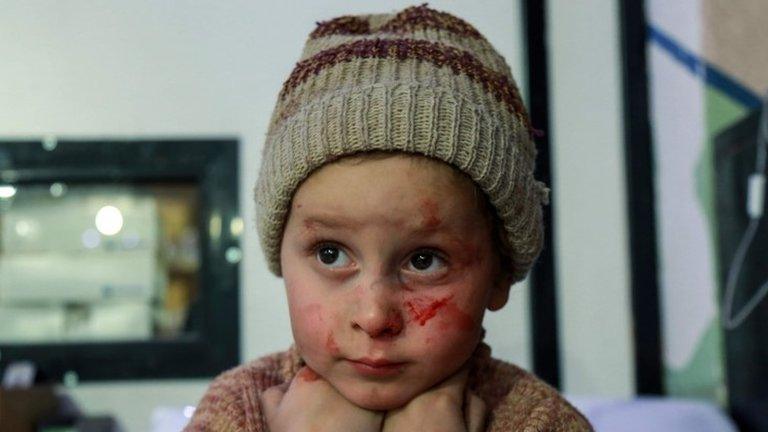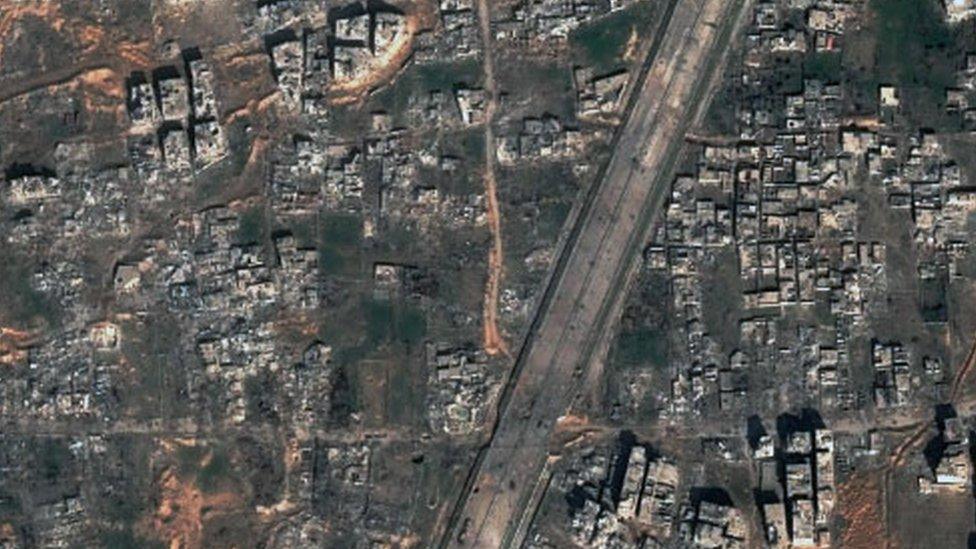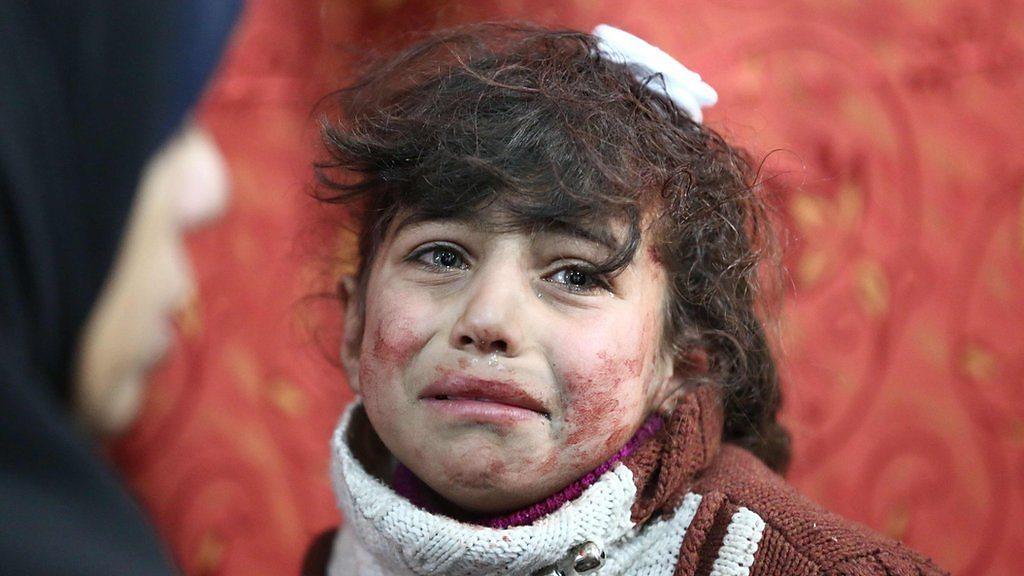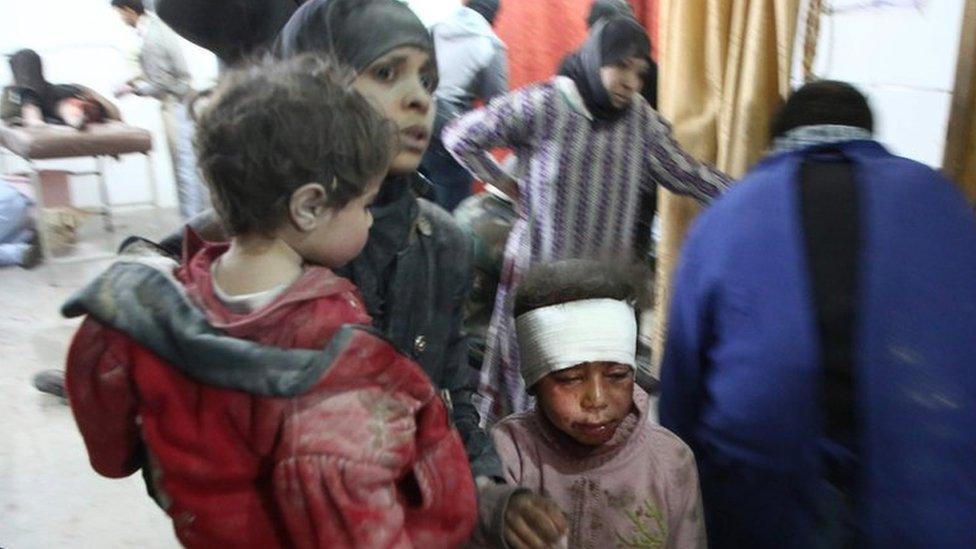Syria war: Air strike on besieged Eastern Ghouta 'not chlorine'
- Published
Footage shows the aid convoy reaching "hell on earth"
Medics in the rebel-held Eastern Ghouta area of Syria say an attack on Sunday initially suspected to have involved chlorine did not use toxic gas.
Several people were treated with breathing problems following government air strikes and shelling just hours after a UN aid envoy left the enclave.
Syria had denied initial allegations that it carried out a chemical attack.
The symptoms were later linked to a rocket that failed to fully explode but "emitted irritating substances".
"Findings show that a basement was targeted by a rocket ... whose impact caused a minor explosion sound," Syria's opposition directorate of health for Damascus said in a statement, adding that the substances emitted caused "coughing, red eyes and throat congestion".
The attack targeted the town of Hammoria and led to the evacuation of dozens of civilians, according to the Syrian Civil Defence, whose volunteer rescue workers are widely known as the White Helmets.

The group earlier tweeted that "more 30 suffocation cases", including women and children, were reported following what it initially described as a "regime gas attack".
The UK-based Syrian Observatory for Human Rights (SOHR) monitoring group, which uses a network of sources on the ground, said at the time that it could not specify the cause of the illnesses.
Syrian state media had suggested that the attack had been staged amid "desperate attempts by some Western countries in the [UN] Security Council and the Human Rights Council to rescue terrorists who will face their inevitable end at the hands of the Syrian Arab Army".
The UN Human Rights Council has ordered an investigation into the recent violence, and has already condemned the alleged use of chemical weapons.
Syrian President Bashar al-Assad has dismissed dire assessments of the humanitarian situation in the enclave as "ridiculous lies".
On Tuesday, the Russian military said in a statement that its forces would provide transport and security for the rebels and their families looking to leave the besieged enclave.
The offer, which would allow rebels with personal weapons through a secure corridor, could pave the way for a deal by which the opposition would surrender its last major stronghold near Damascus to Mr Assad.
A spokesman for one of the dominant rebel groups in Eastern Ghouta, Faylaq al-Rahman, accused Russia - Syria's key ally - of military escalation and of trying to displace the population by force.
Relief convoy arrives in the Eastern Ghouta
On Monday, 94 civilians were killed amid Syrian government air strikes in Eastern Ghouta, despite a supposed five-hour truce, according to the Union of Medical Care and Relief Organizations (UOSSM), which operates medical facilities there.
A UN convoy delivering the first aid since February to the town of Douma was forced to cut short its mission and left after nearly nine hours amid shelling. The UN's refugee agency said 10 out of more than 40 trucks had not been emptied.
The Syrian Red Crescent earlier said 46 truckloads of food parcels were delivered to 27,500 people, along with health items for more than 70,000 people in Douma.
"At least in heaven there's food": The children caught up in Eastern Ghouta air strikes
More than 700 people have been killed in violence in Eastern Ghouta since the government intensified its offensive in recent weeks, many of them children.
Several reports suggest government forces are attempting to cut the region - home to about 393,000 people - in two.
- Published4 March 2018

- Published29 March 2018

- Published23 February 2018

- Published2 May 2023

- Published22 February 2018
